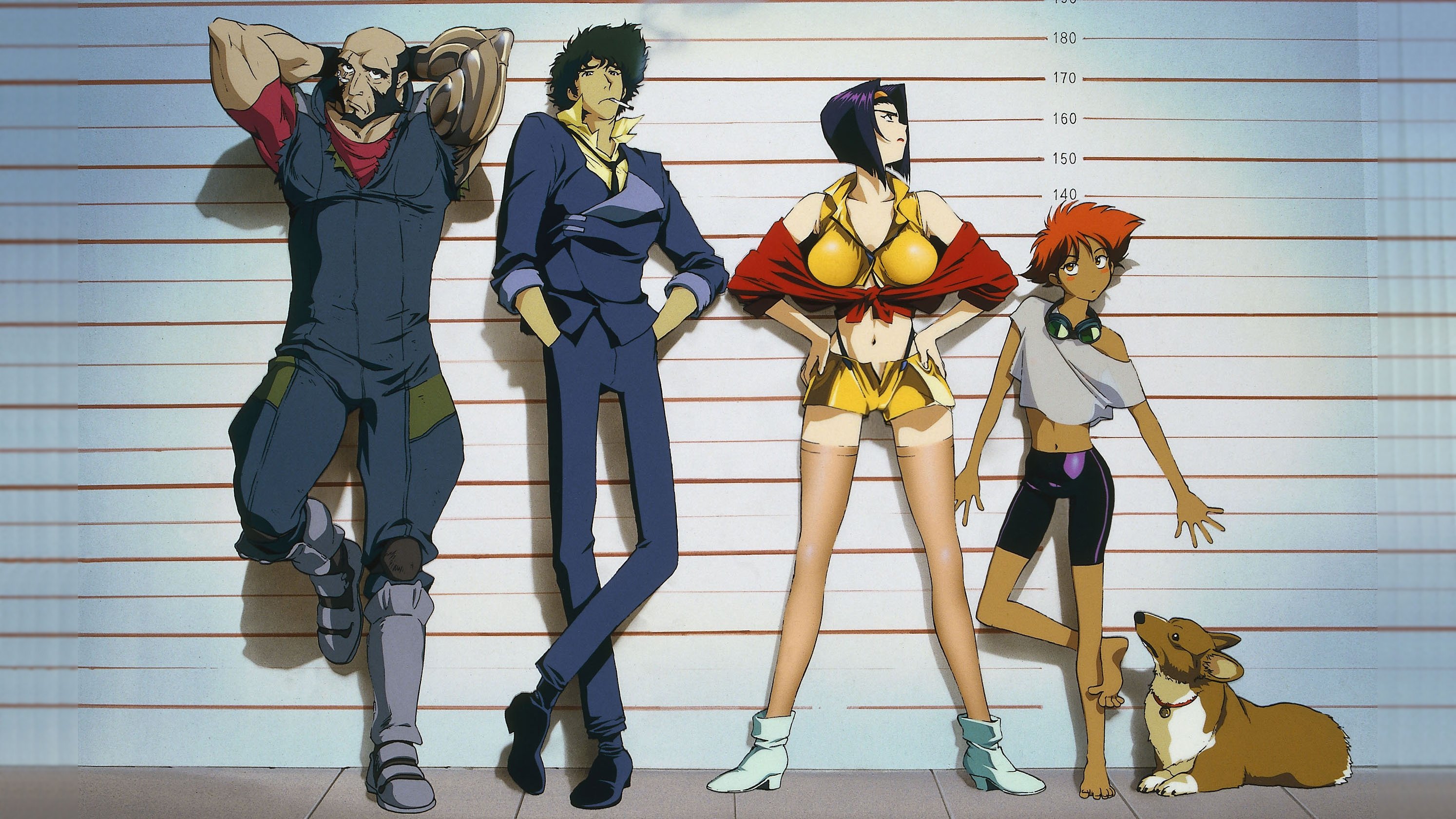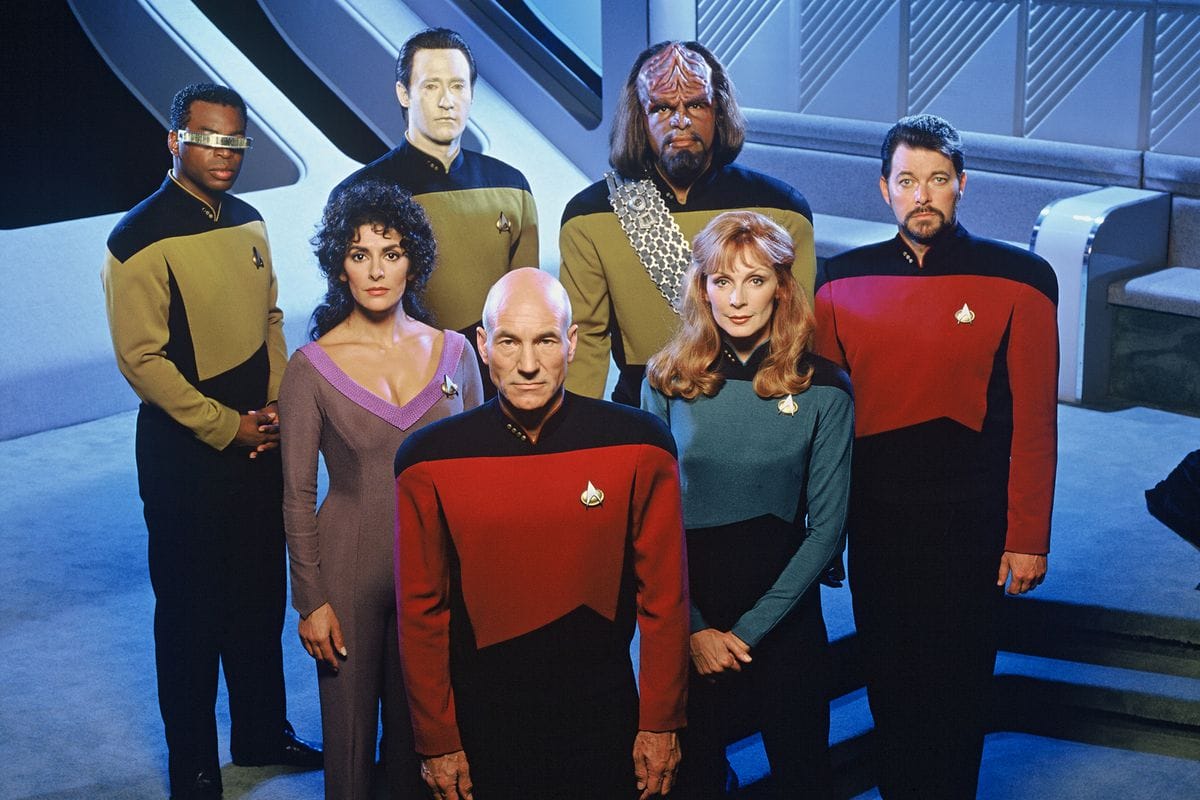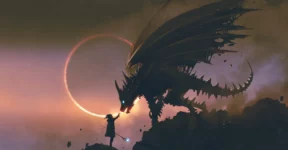In today’s TVs and cinemas, it is almost impossible not to notice how science fiction has become a dominant genre in the entertainment industry. Viewers find nothing peculiar about depictions of spaceships, aliens, teleportation, nanotech suits, laser weapons, and interstellar travel. Believe it or not, things were not always like this; there was a time when people associated sci-fi with pulp magazines rather than mainstream entertainment. The current fascination with curious stories about lightspeed journeys, space colonies, extraterrestrial species, and alien invasions can be traced back to the 1990s. It was the decade when science fiction climbed its way to fame. Well-known films like Jurassic Park (1993) and Independence Day (1996) triggered everybody’s imagination and sparked a massive interest in such outlandish tales. The same thing happened on TV with a range of sci-fi shows, delivering thought-provoking stories and awe-inspiring sets to viewers everywhere. Some are more memorable than others; among the definitive’90s sci-fi Television shows are as follows.

Space: Above and Beyond
Despite having a short run of one season (1995 – 1996) for a total of 23 episodes, Space: Above and Beyond made its mark in history by proving that hard sci-fi might actually work on TV. The show tells the story of a band of fighters known as the Wildcards in their attempt to defend planet Earth from the invading alien species called Chigs. Because the aggressive Chigs still have limited access to faster-than-light propulsion technology, they rely on naturally occurring wormholes to carry out their colonization mission. The Wildcards use maps and timetables of wormholes to plan their defensive strategies. The show even has genetically enhanced humans and rebellious AIs as well.
Star Trek: The Next Generation
Very few sci-fi series could make an impact as long-lasting as Star Trek: TNG. Some would argue that the show still stands today as TV’s richest and most entertaining space opera ever. It ran for seven seasons (1987 – 1994) for a total of 178 episodes. Thanks to a lovable cast that centered on Patrick Stewart as Captain Picard and an almost constant delivery of philosophical quandaries, TNG still earns some of the biggest spotlights in sci-fi conversations until now. TNG had its fair share of high and low points during its seven-year run, but even the cheesiest parts managed to look good back then.
Cowboy Bebop

The brainchild of Shinichirō Watanabe, the genre mashup anime Cowboy Bebop debuted in the United States on Cartoon Network’s Adult Swim in 2001. However, the show originally aired its 26 episodes on TV Tokyo from April to June 1998. During the early US broadcast, several episodes were skipped due to depictions of violent themes in the wake of the September 11 incident. Events in Cowboy Bebop are set in the future where hyperspace gateways render Earth almost uninhabitable. Mars is now the new center of the solar system. There are also other colonies on various planets and satellites. The galactic government is overwhelmed with the new system, leading to the proliferation of private law enforcement agencies. The show offers a blend of hackers, cybernetic masters, martial arts, gambling addictions, and intelligent dogs to the mix. It is a perfect mashup of Western, samurai, noir, and hard sci-fi.
Babylon 5
The most important thing Babylon 5 brought to the table in the 1990s was that there could be an interesting sci-fi TV series other than Gene Roddenberry’s Star Trek and all its incarnations. Many would say Babylon 5 had everything TNG did, and then some. In addition to the enormous diplomatic space station and all the different alien cultures, Babylon 5 also delivers an in-depth look into mythology and an intricate yet enjoyable backstory. Characters come from various backgrounds, including humans and a range of extraterrestrial species; all play major roles in the plotline and develop unique relationships with each other. It is filled with thought-provoking themes such as ethnocentrism, addiction, the caveat of patriotism, religious tolerance, and homophobia.
The X-Files

Dana Scully and Fox Mulder run an investigative journey into extraterrestrial species on Earth, the supernatural realm, genetic modification, and government conspiracy regularly. The X-Files comes with a generous dose of distrust for the government and plenty of sci-fi tropes to keep everyone in the loop of all rumored alien-related conspiracies. Also, it probably has the catchiest theme song of all sci-fi ’90s TV shows.
We think Gene Roddenberry had it right: a sci-fi TV show should be about boldly going where no one has gone before. Although science fiction – in one form or another – has been around since the early days of television, it was not until the 1990s that the genre truly found its stride on the small screen. The era of ’90s sci-fi television brought viewers into new worlds of imagination, engaging characters, and complex narratives that pushed the boundaries of what serialized storytelling could accomplish.
These series not only entertained audiences but often challenged them to think differently about society, technology, and the future. They paved the way for the modern golden age of sci-fi, where series like “The Expanse,” “Black Mirror,” and “Westworld” continue to captivate and provoke thought.
Rediscovering these ’90s classics can be a nostalgic trip for some and a new frontier for others. They remind us that while special effects and production values may age, the power of a well-told story endures through time. Whether it’s the philosophical explorations of “Star Trek: TNG,” the space opera drama of “Babylon 5,” or the noir-ish adventures of “Cowboy Bebop,” there’s a wealth of depth and creativity waiting to be revisited or discovered for the first time.
So, fire up the old DVD player or find a streaming service that carries these gems, and prepare to explore the parallel realms and neon dreams of ’90s sci-fi television. Whether you’re a seasoned fan or a curious newcomer, these shows are sure to provide a fascinating journey through time, space, and the human condition.
Popular sci-fi movies of the 90s:
- Tremors (1990)
- Robocop 2 (1990)
- Total Recall (1990)
- Terminator 2: Judgment Day (1991)
- Jurassic Park (1993)
- Independence Day (1996)
- Men in Black (1997)
- Starship Troopers (1997)
- Contact (1997)
- The Matrix (1999)
- The Iron Giant (1999)
- Star Wars: Episode I – The Phantom Menace (1999)
According to the Rolling Stones, the 5 best sci-fi TV shows of all time are:
- Star Trek (1966-1969)
- The Twilight Zone’ (1959-1964)
- Battlestar Galactica (2004-2009)
- Doctor Who (1963-Present)
- The Mandalorian (2019-Present)
For more information, please visit Rolling Stone.
What was the first sci-fi TV show ever?
Captain Video and His Video Rangers was the first sci-fi TV show, according to the Guiness World Records website. For more information, please go to Guiness World Records.
Check out other articles by month:







